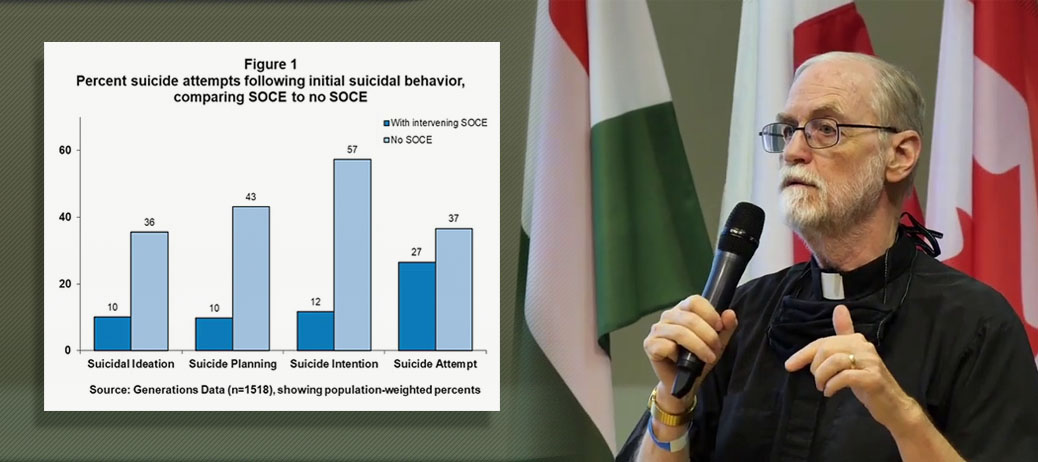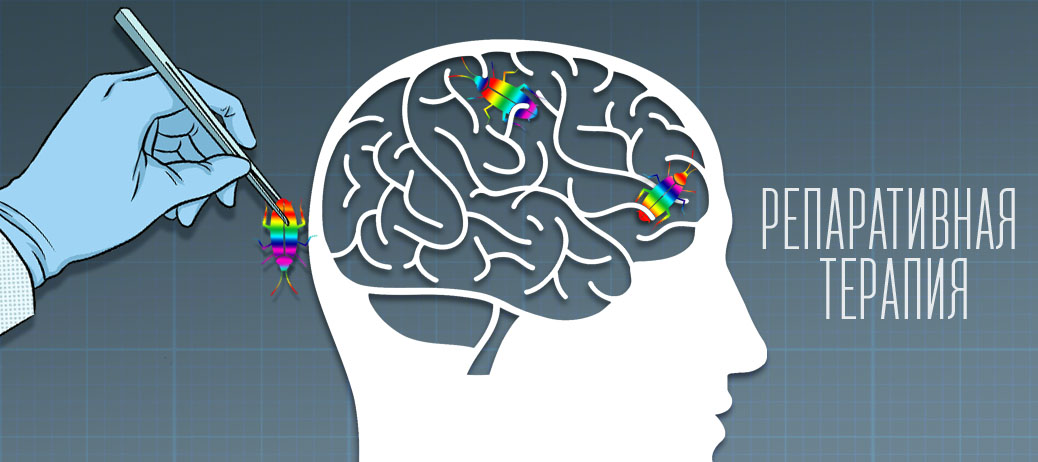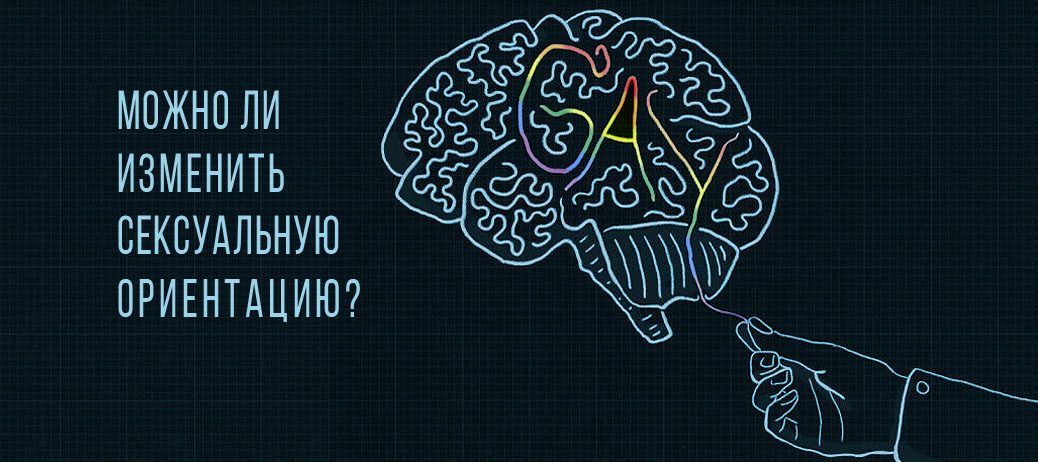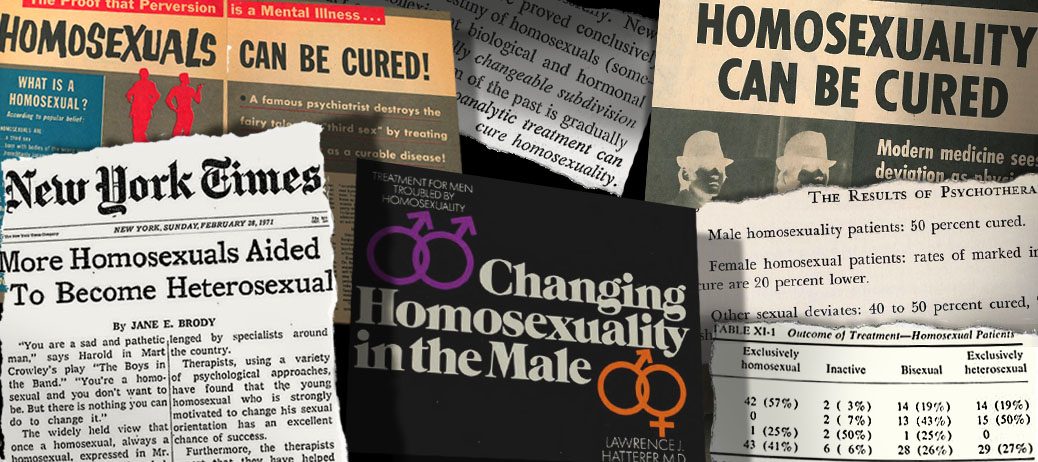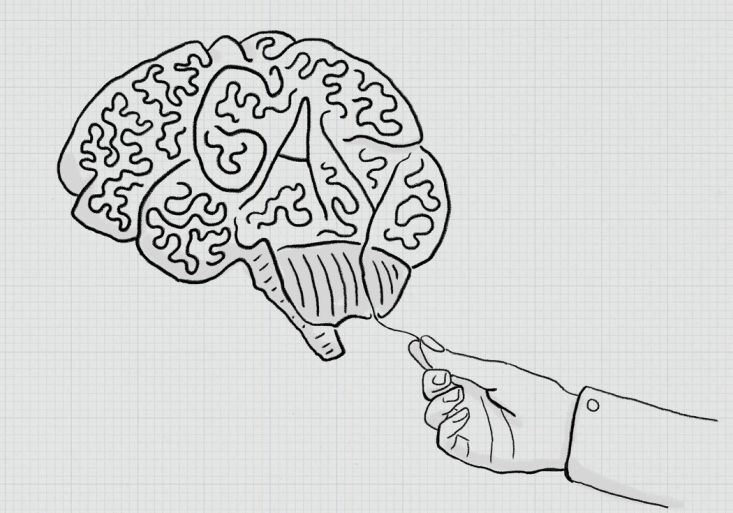In July 2020, John Blosnich of the LGBTQ+ Health Equality Center published another research about the "danger" of reparative therapy. In a survey of 1518 members of "non-transgender sexual minorities", Blosnich's team concluded that individuals who have been subjected to attempted sexual orientation change (hereinafter referred to as SOCE*) report a higher prevalence of suicidal ideation and suicide attempts than those who have not. It has been argued that SOCE is a "harmful stressor that increases sexual minority suicidality". Therefore, attempts to change orientation are unacceptable and must be replaced by an "affirmative withdrawal" that will reconcile the individual with his homosexual inclinations. The study has been called "the most compelling evidence that SOCE causes suicide".
Read more "Tag Archive: Conversion Therapy
Sex drive variability and well-being in men
ANOTHER STUDY PROVES THE EFFICIENCY AND SAFETY OF REPARATIVE THERAPY
While LGBT-led politicians are passing laws to ban therapeutic help for people who experience unwanted homosexual attraction, another study has come out in the US that convincingly demonstrates that such people can be helped.
Read more "Kocharyan G.S. - Bisexuality and conversion therapy: a case study
Annotation. A clinical observation is given where we are talking about “bisexual” to a man, and also describes the conversion therapy he was given using hypnosuggestive programming, which turned out to be very effective.
Currently, unprecedented efforts are being made to ban the use of conversion (reparative) therapy, which is aimed at changing the homosexual orientation of sexual desire to heterosexual. She is stigmatized and declared not only useless, but also extremely harmful to the human body. So, December 7, 2016 parliament of Malta unanimously passed a law prohibiting the use of reparative therapy. For “changing, suppressing and destroying a person's sexual orientation or gender identity,” this law provides for a fine or jail time. [7] The Bundesrat (representative of the federal states of Germany) on 5 June 2020 approved a law prohibiting this therapy. Deutsche Welle reports that its implementation can be punished with imprisonment for up to one year, and advertising and mediation - a fine of up to 30 thousand euros [1]. In the US, only 18 states, Puerto Rico and Washington DC, have banned conversion therapy for minors. Adults can volunteer for conversion therapy throughout the country [9]... Instagram and Facebook announced the blocking of all posts on these social networks that promote conversion therapy [8].
The assertions that conversion therapy is not only ineffective, but in all cases causes great harm to the body are false. The corresponding argumentation can be found in our articles [3; 4; 6]. Moreover, a number of our works have presented the effective use of conversion therapy [2; 5].
Here is a case from our clinical practice, where conversion therapy was very successful in correcting the direction of sexual desire in a man with bisexual preferences.
Read more "Can I change my sexual orientation?
Most of the material below is published in an analytical report. “The rhetoric of the homosexual movement in the light of scientific facts”. doi:10.12731/978-5-907208-04-9, ISBN 978-5-907208-04-9
Key findings
(1) There is a substantial base of empirical and clinical evidence that unwanted homosexual attraction can be effectively eliminated.
(2) An important condition for the effectiveness of reparative therapy is the patient's informed participation and desire to change.
(3) In many cases, homosexual attraction, which can occur during puberty, disappears without a trace at a more mature age.
Jan Goland on the treatment of homosexuality (exclusive video interview)
foreword
In the early 1990's, gay activists in the US tried to get homosexuals recognized as a special “protected group” from the Supreme Court. In order for a certain group of people to receive a protected status, it must be original, homogeneous and constant (which the gay community is not). In this regard, gay activists launched various myths that were readily picked up and circulated by the liberal media. Contrary to scientific facts and common sense, it was claimed that at least one in ten people is homosexual, and that attraction to one's sex is an inborn characteristic, like a race, which is caused by a special gene and unchanged like skin color. In an attempt to equate themselves with the once oppressed national-ethnic minorities, gay activists even introduced such incongruous expressions as “sexual minorities” and “gay people”.
Read more "Treatment of homosexuality before the era of political correctness
Numerous cases of successful therapeutic correction of homosexual behavior and attraction are described in detail in the professional literature. Report The National Association for the Study and Therapy of Homosexuality presents an overview of empirical evidence, clinical reports and research from the end of the 19th century to the present, which convincingly prove that interested men and women can make the transition from homosexuality to heterosexuality. Before the era of political correctness, it was a well-known scientific fact, which is freely wrote the central press. Even the American Psychiatric Association, excluding syntonic homosexuality from the list of mental disorders in 1974, noted the that “Modern treatment methods allow a significant part of homosexuals who want to change their orientation to do so”.
The translation follows Articles from the New York Times of 1971.
Reorientation therapy: questions and answers
Are all homosexuals gay?
“Gay” is the identity that a person chooses for yourself. Not all homosexual people identify as “gay.” People who do not identify as gay believe that they are essentially heterosexual and seek help in identifying the specific reasons why they experience an undesirable same-sex attraction. During therapy, counselors and psychologists use ethical methods to help clients establish the reasons for their same-sex attraction and sensitively help them resolve the underlying factors leading to homosexual feelings. These people, who are an integral part of our society, strive to protect their right to receive help and support to get rid of unwanted same-sex attraction, change their sexual orientation and / or preserve celibacy. This is achieved through gender mainstreaming programs, including counseling and heterosexuality treatment, also known as “Sexual Orientation Intervention” (SOCE) or Reorientation Therapy.
Read more "